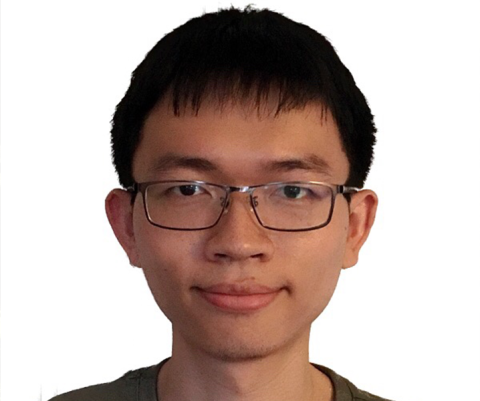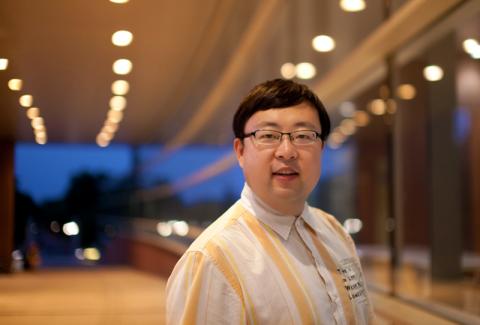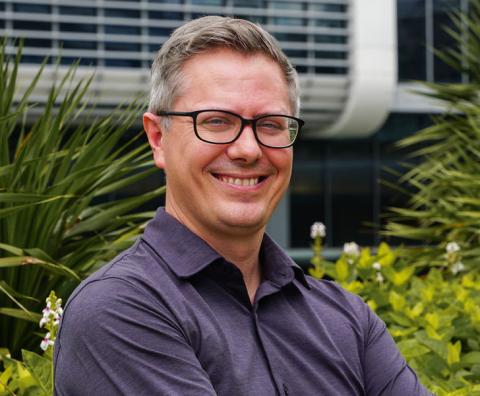Dan is a multidisciplinary coastal scientist, interested in human-environment interactions in mangroves and seagrasses. In particular his research group uses the lens of blue carbon to understand (1) carbon cycling and other ecosystem services; (2) how blue carbon ecosystems respond to sea-level rise; (3) how blue carbon ecosystems respond to deforestation; and (4) how we can use blue carbon to promote mangrove conservation and restoration, whether through national greenhouse gas inventories or carbon credit projects. Dan’s work is often conducted in collaboration with governments, NGOs and the corporate sector.
Dan is the Co-Editor in Chief of WIREs Climate Change, and a member of the international Blue Carbon Initiative Scientific Working Group, the IUCN Mangrove Specialist Group and the Global Mangrove Alliance. Prior to joining Tulane, Dan was based at the National University of Singapore (2009-2022). For more information please visit https://www.themangrovelab.com/.
Selected Publications
For a full list visit www.themangrovelab.com/publications
Zhang, Luo, Friess, Wang, Li. 2024. Stronger increases but greater variability in global mangrove productivity compared to that of adjacent terrestrial forests. Nature Ecology and Evolution 8, 239-250.
Teo, Tan, Sarira, de Alban, Zheng, Rachakonda, Chen, Lim, Zhao, Tang, Friess, Koh. 2023. Uncertainties in deforestation emission baseline methodologies and implications for carbon markets. Nature Communications 14, 8277.
Friess. 2023. The potential of mangrove and seagrass blue carbon for Small Island States. Current Opinion in Environmental Sustainability 64, 101324.
Friess, Gatt, Fung, Alemu, Bhatia, Case, Chua, Huang, Kwan, Lim, Nathan, Ow, Saavedra-Hortua, Sloey, Yando, Ibrahim, Koh, Puah, Teo, Tun, Wong, Yaakub. 2023. Blue carbon science, management and policy across a tropical urban landscape. Landscape and Urban Planning 230, 104610
Hagger, Worthington, Lovelock, Amano, Brown, Friess, Landis, Mumby, Morrison, O’Brien, Wilson, Zganjar, Saunders. 2022. Drivers of global mangrove loss and gain in social-ecological systems. Nature Communications 13, 6373.
Saintilan, Kovalenko, Guntenspergen, Rogers, Lynch, Cahoon, Lovelock, Friess, et al. 2022. Constraints on the adjustment of tidal marshes to accelerating sea-level rise. Science 377, 523-527.
Friess, Adame, Adams, Lovelock. 2022. Mangrove forests under climate change in a 2°C world. WIREs Climate Change 13, e792.
Friess, Howard, Huxham, Macreadie, Ross. 2022. Capitalizing on the global financial interest in blue carbon. PLoS Climate 1, 0000061.
Friess, Gatt, Ahmad, Brown, Sidik, Wodehouse. 2022. Achieving ambitious mangrove restoration targets will need a transdisciplinary and evidence-informed approach. One Earth 5, 456-460.
Su, Friess, Gasparatos. 2021. A meta-analysis of the ecological and economic outcomes of mangrove restoration. Nature Communications 12, 5050.
Macreadie, Costa, Atwood, Friess, Kelleway, Kennedy, Lovelock, Serrano, Duarte. 2021. Blue carbon as a natural climate solution. Nature Reviews Earth & Environment 2, 826-839.
Sudmeier-Rieux, Arce-Mojica, Boehmer, Doswald, Emerton, Friess et al. 2021. Scientific evidence for ecosystem-based disaster risk reduction. Nature Sustainability 4, 803-810.
Zeng, Friess, Sarira, Siman, Koh. 2021. Global potential and financial limits of mangrove blue carbon for climate change mitigation. Current Biology 31, 1737-1743.
Friess, Yando, Abuchahla, Adams, Cannicci, Canty, Cavanaugh, Connolly, Cormier, Dahdouh-Guebas, Diele, Feller, Fratini, Jennerjahn, Lee, Ogurcak, Ouyang, Rogers, Rowntree, Sharma, Sloey, Wee. 2020. Mangroves give cause for conservation optimism, for now. Current Biology 30, R153-R154.
Friess, Yando, Alemu, Wong, Soto, Bhatia. 2020. Ecosystem services and disservices of mangrove forests and salt marshes. Oceanography and Marine Biology: an Annual Review 58, 107-142.
Zeng, Sarira, Carrasco, Chong, Friess, Lee, Taillardat, Worthington, Zhang, Koh. 2020. Economic and social constraints on reforestation for climate mitigation in Southeast Asia. Nature Climate Change 10, 842-844.
Friess, Rogers, Lovelock, Krauss, Hamilton, Lee, Lucas, Primavera, Rajkaran, Shi. 2019. The state of the world's mangrove forests: past, present and future. Annual Review of Environment and Resources 44, 89-115.
Macreadie, Anton, Raven, Beaumont, Connolly, Friess et al. 2019. The future of Blue Carbon science. Nature Communications 10, 3998.
Hamilton, Friess. 2018. Global carbon stocks and potential emissions due to mangrove deforestation from 2000 to 2012. Nature Climate Change 8, 240-244.
Taillardat, Friess, Lupascu. 2018. Mangrove blue carbon strategies for climate change mitigation are most effective at the national scale. Biology Letters 14, 20180251.
Friess, Thompson, Brown, Amir, Cameron, Koldewey, Sasmito, Sidik. 2016. Policy challenges and approaches for the conservation of mangrove forests in Southeast Asia. Conservation Biology 30, 933-949.
Richards, Friess. 2016. Rates and drivers of mangrove deforestation in Southeast Asia, 2000-2012. Proceedings of the National Academy of Sciences 113, 344-349.
Lovelock, Cahoon, Friess, Guntenspergen, Krauss, Reef, Rogers, Saunders, Sidik, Swales, Saintilan, Thuyen & Triet. 2015. The vulnerability of Indo-Pacific mangrove forests to sea-level rise. Nature 526, 559-563.
Friess, Phelps, Garmendia, Gómez-Baggethun. 2015. Payments for Ecosystem Services (PES) in the face of external biophysical stressors. Global Environmental Change 30, 31-42.
Friess, Webb. 2014. Variability in mangrove change estimates and implications for the assessment of ecosystem service provision. Global Ecology and Biogeography 23, 715-725.
Webb, Friess, Krauss, Cahoon, Guntenspergen, Phelps. 2013. A global standard for monitoring coastal wetland vulnerability to accelerated sea level rise. Nature Climate Change 3, 458-465.
Friess, Krauss, Horstman, Balke, Bouma, Galli, Webb. 2012. Are all intertidal wetlands naturally created equal? Bottlenecks, thresholds and knowledge gaps to mangrove and saltmarsh ecosystems. Biological Reviews 87, 346-366.




